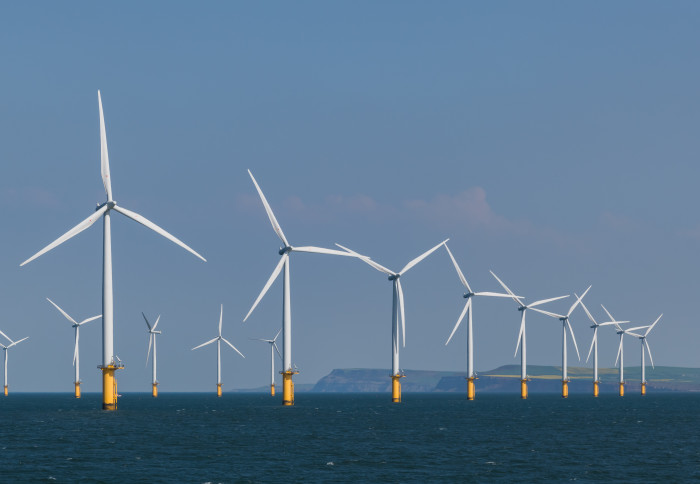UK offshore wind target must be at least doubled to deliver net-zero electricity

Energy Futures Lab analysis shows the UK’s existing offshore wind target falls far short of what is required to deliver net-zero electricity by 2035.
The UK will need to at least double its 2030 offshore wind target and roll out new grid-connected batteries at an unprecedented speed and scale if it is to deliver net-zero emissions electricity by the middle of the next decade, according to new analysis from Imperial College London.
The research, published in a White Paper by Energy Futures Lab, Imperial’s energy institute, shows up to 108 GW of offshore wind capacity will be needed by 2035, more than twice the 2030 target of 40 GW announced by Prime Minister Boris Johnson last year and a tenfold increase on the UK’s current offshore wind capacity.
Offshore wind provides the best-value route to a decarbonised grid for Britain. Dr Marko Aunedi Lead author
Using an advanced electricity system model, researchers identified the most cost-effective portfolios of generation and storage technologies that could deliver carbon-neutral electricity by 2035, a key milestone on the UK’s journey to a net-zero economy by 2050.
“Offshore wind provides the best-value route to a decarbonised grid for Britain, thanks in part to our relatively windy location. In every scenario we looked at, it played the single biggest role in generating electricity, meeting around three quarters of our needs. The question is whether we can ramp up the construction of wind farms quickly enough,” said Dr Marko Aunedi, lead author of the White Paper.
“The UK has already set out strong commitments in this area and the Prime Minister says he wants the UK to be the Saudi Arabia of wind, but it’s clear from this work that the target he’s set, while certainly ambitious and challenging to realise, just won’t get us anywhere near where we need to be. We actually need to go much further.”
Barring a dramatic fall in costs, solar power will play only a small role in decarbonising the British electricity system, while the cost of nuclear energy would need to halve to warrant building new nuclear plants, though the challenge of building wind farms quickly enough means some new nuclear power could still be needed, even if not economically optimal.
The White Paper also highlights the need for a rapid expansion of grid-scale energy storage. Over 140 GW of grid-connected batteries will be needed in Britain, a more than 100-fold increase on the volume in use today, to help even out supply and demand and ensure security of supply in a system dominated by intermittent renewables.
We need to invest now in the technologies that can deliver green electricity in the most cost-effective way. Professor Tim Green Co-Director, Energy Futures Lab
The exact capacity of wind power and energy storage needed in a net-zero emissions system depends partly on the availability of other technologies, some not yet widely available. If direct air capture, a negative-emissions technology, could be utilised, for example, heat pumps could use natural gas on the coldest days of the year, displacing some battery energy storage.
“There’s no doubt that the scale of change we’re talking about presents a considerable challenge but getting electricity emissions to net-zero by the mid-2030s, and ultimately going to net-negative emissions, is critical given the large increase in electricity demand created by the electrification of heating and road transport,” said Professor Tim Green, Co-Director of Energy Futures Lab and co-author of the White Paper.
“We can’t afford to burn more fossil fuels to meet that demand so we need to invest now in the technologies that can deliver green electricity in the most cost-effective way. The technology mix will be different in different countries, but in Britain, it’s clear the system will be dominated by wind power with batteries picking up a lot of the slack when wind is low.”
The research was carried out as part of the Integrated Development of Low-carbon Energy Systems (IDLES) programme at Imperial College London, funded by the Engineering and Physical Sciences Research Council with support from industrial partners including National Grid, EDF Energy and Hitachi ABB Power Grids.
Article supporters
Article text (excluding photos or graphics) © Imperial College London.
Photos and graphics subject to third party copyright used with permission or © Imperial College London.
Reporter
Conor McNally
The Grantham Institute for Climate Change
